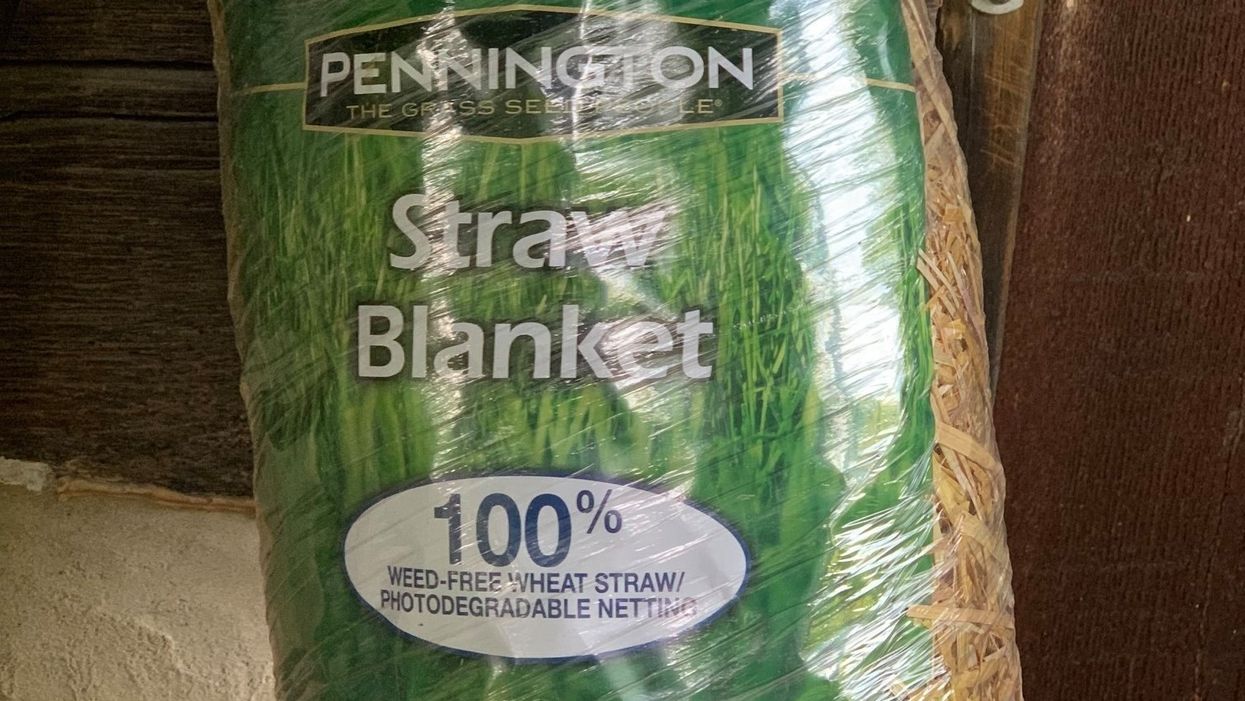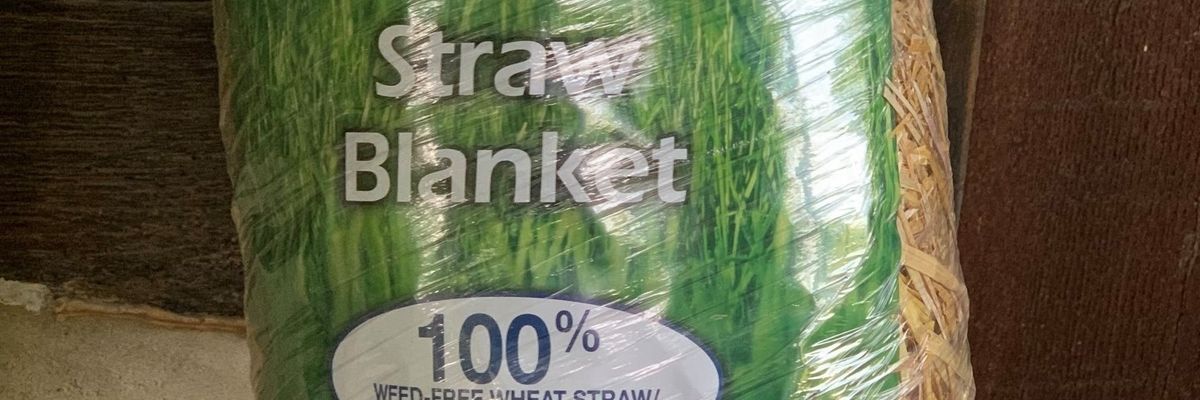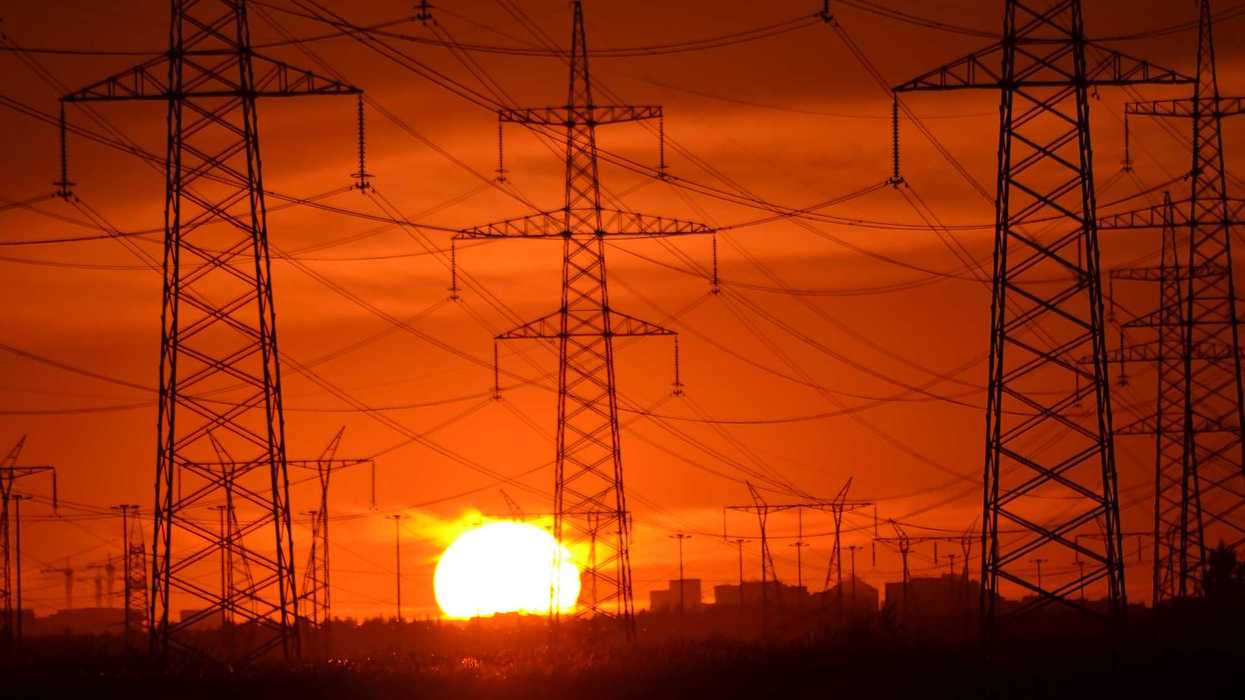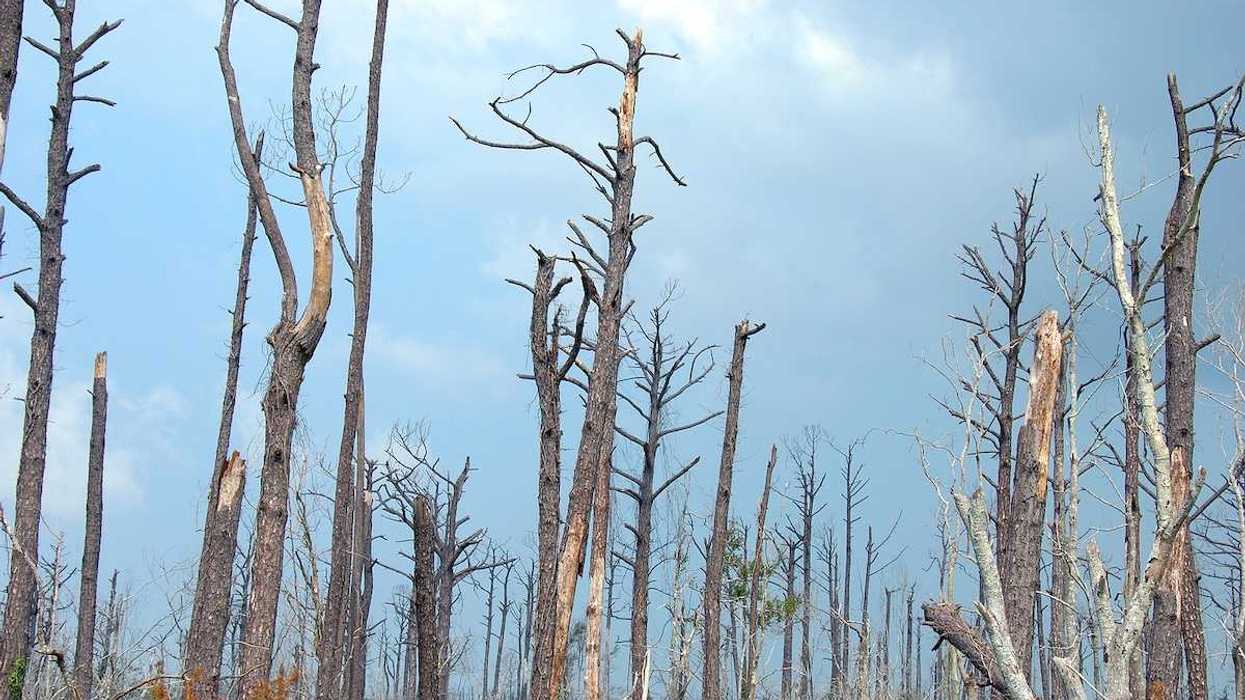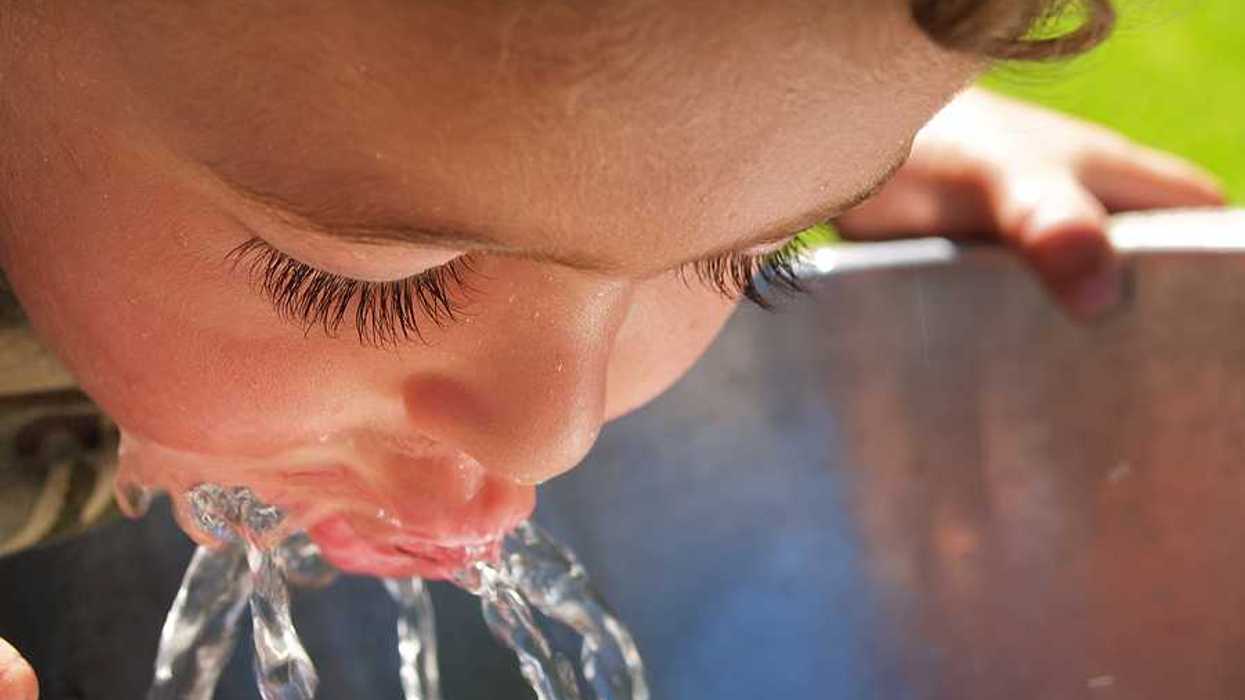CROZET, Virginia – I didn't know what to do with this. Fortunately the Facebook community was listening.
As a kid I had pet snakes. I have always loved them. Now, in my log cabin office snugged up against the Blue Ridge Mountains in Virginia, black rat snakes live not as pets but as co-residents, eating resident mice. They come and go. Less welcome was the copperhead I caught and moved from the entrance door earlier last week. They all are part of the earth's biodiversity and play roles in making the earth inhabitable for all, including humans.
Last week, after moving the copperhead, I discovered that a weed control tool I purchased and laid out in my garden called a "Straw Blanket," from Pennington Lawn and Garden Care Products, indiscriminately kills snakes. They get tangled in the "photodegradable plastic" mesh that holds the straw together and that is supposed to degrade over time in sunlight. Two docile, friendly corn snakes were caught in the mesh together, and died. Maybe some of you would like to surround your house with it because you are afraid of snakes. Perhaps Pennington should advertise this feature: #WeKillSnakes. I will spare you photos of the dead snakes.
A consumer myth
Biodegradable is one of the great myths of the consumer society.
I was – and am – horrified. Biodiversity (including snakes) is having a really tough time these days (see the recent UN report). And the worse it gets for other parts of the animal/plant kingdom, the more vulnerable we are for a collapse of civilization. If you think this is an exaggeration, you don't know the relevant scientific literature.
I put this tale of shock and woe on Facebook. Pennington Lawn and Garden, I said, needs to stop selling this product, quickly. I tagged Charlottesville Southern States Cooperative, where I bought the product.
And here's where the story takes an unexpected turn for the better:
I went back to Charlottesville Southern States Cooperative, to return my unused Straw Blanket rolls and to tell them that they were selling a defective product that killed snakes. I didn't want a refund, I told the clerk, but I hoped the store would consider putting a warning sign on the sales floor. She smiled at me. "We saw your post and already took all of them off the floor."
Thank you Charlottesville Southern States Cooperative! I hope you also encourage Pennington Lawn and Garden to do the same.
- New boa species “on its way to extinction” discovered in the Bahamas ›
- What we lose when we lose the world's frogs - Vox ›
- Biodegradable plastic bags could be just as bad for the environment ... ›
- Pollution is one of the top drivers of biodiversity loss. Why is no one talking about it at COP16? - EHN ›
- Biodegradable plastic bags could be just as bad for the environment, research finds – EnvironmentJournal ›

